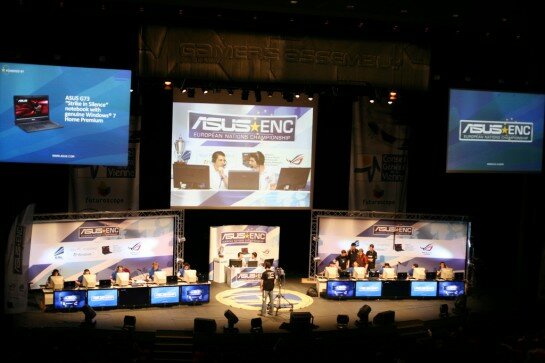Ever since “eSports” – the abbreviation for “electronic sports” – was coined, it has been a constant source of contention among sporting purists. Having followed the exploits of some of the world’s most prominent teams, such as Dignitas, Fnatic and MYM, and having interacted with the players and managers, I can say – with some conviction – that eSports does indeed qualify as a sport.
These are the reasons why.
Spirit of competition
The primeval competitive drive that sportspeople exhibit is what makes watching sports so gripping, and there’s no shortage of the stuff among eSports proponents. Those who have attended an offline event, such as the ASUS European Nations Championship (ENC), will tell you that pro-gamers’ desire to compete and win is no less genuine than in any other sport. Just hearing the outbursts of elation that erupt after each victory will attest to this.
Skill
Imagine scoring a perfect headshot when an opponent is in mid air, and so far away that the avatar registers as just a couple of pixels onscreen. That’s the uncommon level of skill of skill that the best pro-gamers have, honed over hours of training a day. Anyone who has given a punishingly-fast first person shooter (FPS) a go will agree: there’s nothing instinctual about it. Like any other sport, in-game mastery is achieved through lots of practice.
Concentration
While engaging in eSports doesn’t entail the same degree of physical exertion required in other sports, there’s no denying that a pro-gamer’s mental strength is tested to limit. Regardless of whether their specialties lie in FPS games that stress eye–hand coordination, or real-time strategy (RTS) titles that require ceaseless micromanagement, all of the pro-gamers I’ve met have demonstrated exceptional mental toughness and an uncanny ability to maintain razor sharp focus while competing.
Strategy and teamwork
Team-based FPS games such as Counter-Strike 1.6 are perfect showcases for the detailed strategizing that occurs both before and during matches. The communication that ensues between players after a match kicks off is something to behold. The dynamics are finely tuned and the information flow highly efficient – no different from the communication that occurs on a football pitch or basketball court.
Fans
Contrary to what many people believe, eSports does enjoy a decent following. The recently-concluded ASUS ENC France , for example, drew a healthy crowd of enthusiastic spectators. On the extreme end of the spectrum, of course, are the Warcraft events in Korea which routinely pack stadiums of rabid fans.
Even as a casual observer, these reasons compel me to conclude that eSports is similar enough to traditionally-defined sports to render it part of the same category.
What do you think? Comments and/or objections are, as always, welcome.



